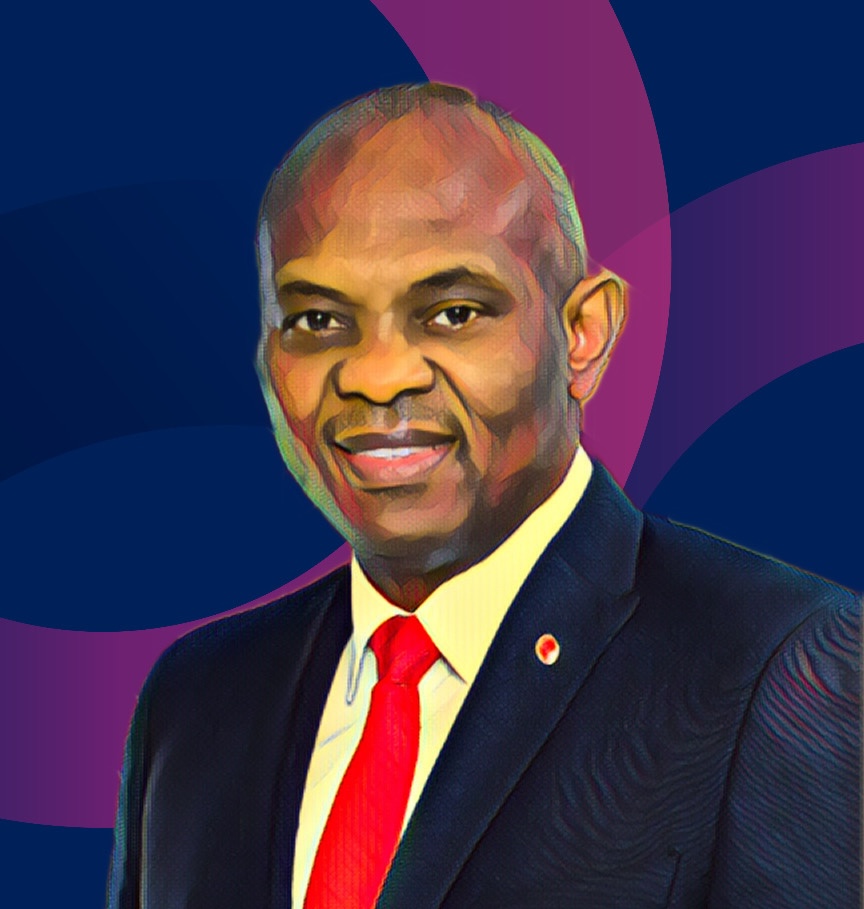Prominent Nigerian businessman Tony Elumelu has called on the Nigerian government and security agencies to take decisive action against the theft of the country’s crude oil, which he says is a major issue affecting the nation’s economy. Elumelu, known for his leadership in both business and philanthropy, emphasized that the authorities should be able to identify and expose those responsible for stealing large quantities of crude oil, especially through the use of vessels that traverse Nigeria’s territorial waters.
In a recent interview with the Financial Times, Elumelu expressed his deep concerns about oil theft, noting that this criminal activity has played a significant role in driving international oil companies to divest from their onshore assets in Nigeria. Elumelu, who has firsthand experience with the consequences of oil theft, described how criminal gangs began stealing crude from the pipelines owned by his company. This led to a drastic reduction in production, forcing his company to take drastic measures.
In 2022, the situation became so dire that Elumelu took to social media to highlight the severity of the problem. In a tweet that resonated with many, he questioned how Nigeria could be losing over 95 percent of its oil production to thieves. He pointed out that the Bonny Terminal, which should have been receiving over 200,000 barrels of crude oil daily, was instead receiving less than 3,000 barrels, prompting Shell, the operator, to declare force majeure. Elumelu bluntly stated that Nigeria’s failure to meet its OPEC production quota was not due to a lack of investment but was simply because of rampant theft.
He further contrasted Nigeria’s situation with that of other oil-producing countries, which are seeing their foreign reserves rise. Elumelu called for greater accountability from Nigeria’s leaders, stressing that the country’s economic woes are directly tied to the issue of oil theft. He insisted that the Nigerian government must take responsibility and address this critical problem if the nation is to see any real progress.
Despite the ongoing challenges, Elumelu remains somewhat optimistic. However, he revealed that oil thieves continue to siphon off about 18 percent of the crude oil produced from his fields, which pump out 42,000 barrels of crude daily. When asked who might be behind the theft, Elumelu pointed out the absurdity of the situation. He noted that this is not a small-scale theft where someone could hide a bottle of Coke in their pocket. Instead, it involves large-scale operations with vessels coming into Nigeria’s waters to steal crude oil. Elumelu questioned how such activities could go unnoticed, emphasizing that the government and security agencies should be able to track down and reveal the identities of those involved.
Elumelu drew a parallel with the United States, where, he said, authorities quickly identified the background of individuals involved in serious incidents, such as the attempt on former President Donald Trump. He stressed that Nigeria’s security agencies should be able to provide similar results, especially in cases involving the theft of the country’s most valuable resource. The businessman expressed frustration that large vessels could enter Nigerian waters to steal oil without the government or security forces being able to track and stop them.
Reflecting on his personal experiences in the oil sector, Elumelu recounted how the previous administration, under President Muhammadu Buhari, allegedly blocked his attempts to acquire an oilfield. He disclosed that his company, Heirs Holdings, had been working on purchasing the oilfield since 2017 and had even raised $2.5 billion to finance the acquisition of a different one. However, Elumelu claimed that the deal was thwarted by Buhari and his late Chief of Staff, Abba Kyari, who argued that such a strategically important asset could not be allowed to fall into the hands of a private operator.
Elumelu expressed his disbelief at the reasoning behind the decision, pointing out that he would have been purchasing the oilfield from a foreign company. The decision, he argued, defied logic, especially considering the importance of energy security for Nigeria. As one of the few Nigerian entrepreneurs who made their fortunes outside the oil industry, Elumelu revealed that his decision to buy a 45 percent stake in an oilfield three years ago was driven by a desire to contribute to Nigeria’s energy security, particularly given the country’s chronic power shortages.
He highlighted the importance of energy security for Nigeria, a country with a population of roughly 200 million people that still struggles to produce enough electricity to meet its needs. Elumelu’s move into the oil sector, at a time when international oil companies like Shell, Total, and Eni were selling off their shallow water assets in Nigeria, was aimed at ensuring that the country had a reliable supply of energy to support its development.
Elumelu also touched on the broader issue of joblessness in Nigeria, which he described as a “betrayal of a generation.” He acknowledged the frustration of young Nigerians who have completed their education and returned home with dreams and aspirations, only to find limited opportunities. In light of this, Elumelu expressed his support for those who choose to leave Nigeria in search of better opportunities abroad, a phenomenon commonly referred to as the “japa” syndrome.
He stated that he fully supports individuals who decide to move to countries like Canada, the UK, or the US in search of better prospects. However, he also encouraged those who chose to remain in Nigeria to strive to create an impact and build a legacy. Elumelu emphasized that while it is understandable for people to seek better opportunities elsewhere, those who stay behind have a responsibility to contribute to the nation’s development and to help create a better future for the next generation.


